Research Article
Issue Reviewers
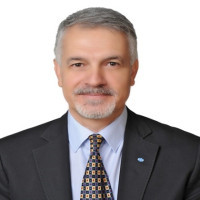
1960 Sivas doğumlu. 1983 Erciyes Ünv. Müh Fak. Makina mühendisliği - 1987 Erciyes Ünv. Fen Bilimleri Enst. yük lis 1992Erciyes Ünv. Fen Bilimleri Enst.Doktora mezunu.
1983-1999 Cumhuriyet Ünv. makina muh. böl.Başkanı 1999-2004 Mustafa Kemal Ünv. Makina Müh Öğr üyesi. 2004- Dumlupınar Ünv. Muh.Fak Öğretim Üyesi, 2020-... Dumlupınar Üniversitesi Endüstri ühendisliği Bölüm Başkanı
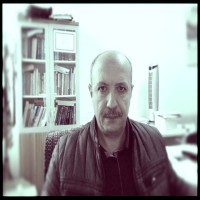
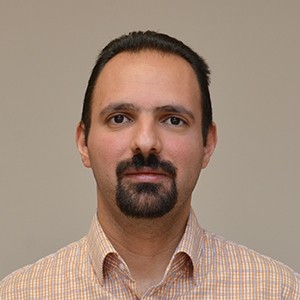
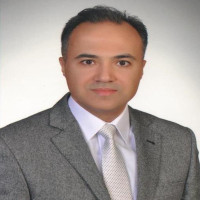
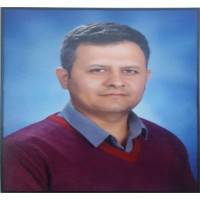



received the B.Sc. degree in electrical engineering from Fırat University, Elazığ, Turkey, in 2011, and the M.Sc. and Ph.D. degrees in electrical and electronics engineering from Dicle University, Diyarbakır, Turkey, in 2017 and 2022, respectively. He is currently working as an Research Assistant, Dicle University, Diyarbakır, Turkey. His research interests include distribution network, fault detection, deep learning, power systems, microgrids.

Ceren KAYA is an Assistant Professor at the Department of Biomedical Engineering, Zonguldak Bulent Ecevit University. Her main research interests include biomedical signal processing, biomedical image processing, data mining, machine learning and deep learning. She has published papers in the field of biomedical signal processing, biomedical image processing and related artificial intelligence applications.
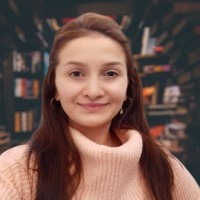
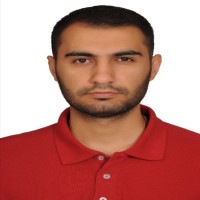
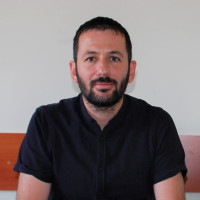
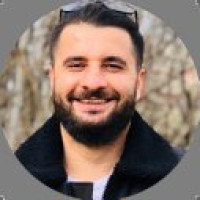
Emrullah ACAR received the B.S. degree in electrical and electronics engineering (EEE) from Çukurova University, Turkey & Linkoping University, Sweden in 2009; the M.S degree in EEE from Istanbul Technical University & Dicle University, Turkey in 2012 and the PhD degree in EEE from Gaziantep University & Dicle University, Turkey in 2017, respectively. He is Assoc. Prof at the Batman University and his research interests include signal / image processing, machine learning and remote sensing.

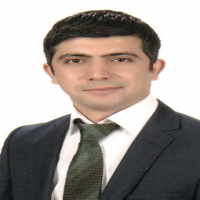




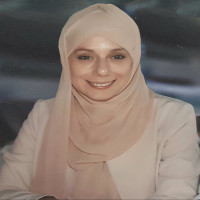



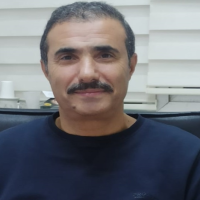
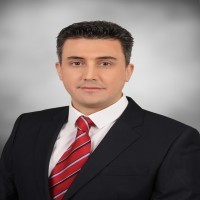
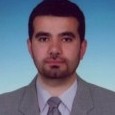
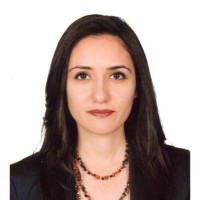
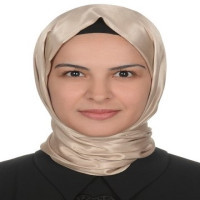
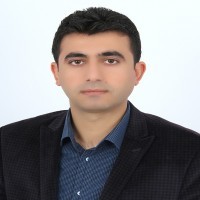




 Web
Web
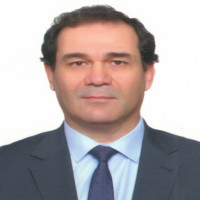
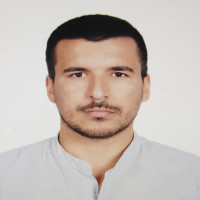
Computer Aided Design and Manufacturing, Additive Manufacturing, Mechanics
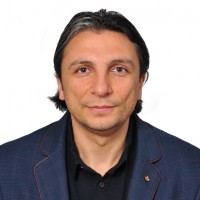
Dr. Selim Doğan is an Associate Professor in the Department of Environmental Engineering at Konya Technical University. His research interests focus on environmental issues such as drought analysis, climate change, sustainable environmental management, and the reuse of wastewater. His work particularly addresses the management of water resources and environmental sustainability. Dr. Doğan investigates the impacts of climate change on the environment and water resources, contributing to the development of sustainable solutions. He also conducts research on promoting environmentally friendly technologies, such as wastewater recycling and reuse. Throughout his academic career, Dr. Doğan has participated in various national and international projects and has published numerous scientific papers in leading journals on topics related to environmental engineering.
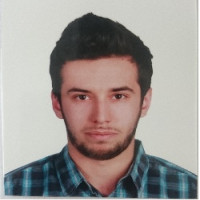
Taha ETEM received the B.Sc. degree in Electrical-Electronics Engineering from Firat University, Elazig, Turkey, in 2013, and the M.Sc. degree in Electrical-Electronics Engineering from Inonu University, Malatya, Turkey, in 2017, and received the Ph.D. degree in Electrical-Electronics Engineering from Firat University, Elazig, Turkey, in 2022. He was with Cankiri Karatekin University, Cankiri, Turkey, as a Faculty Member. He is currently an Assistant Professor in the Computer Engineering Department. His research interests include encryption systems, random number generators, smart systems and radio-frequency systems.
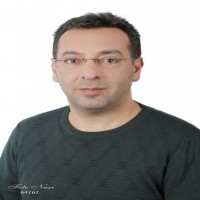
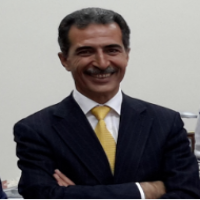
Dr. Toprak is a civil engineer and academician in water sciences (M.Sc., PhD). He interests in water resources, hydraulics, fluid mechanics, global climate change, statistics, and fuzzy logic.
He was born in October 8, 1967 in Diyarbakir – Turkey. He graduated from Hizirilyas First School, Ali Emiri Secondary School, and Gaziantep High School in 1979, 1982, and 1985 respectively. He graduated from Dicle University, Engineering Faculty Civil Engineering Department in 1989. Just after graduating, he worked in the private sector for a short period. He completed his MSc studies in 1994 at Firat University and his PhD from Istanbul Technical University (ITU) in 2004. He gets titles Assoc. Prof. and Prof. in 2011 and 2017, respectively.
Dr. Toprak has more than 150 of published studies, which 12 of them are books or books’ chapters in water resources, hydraulics, fluid mechanics, global climate change, statistics, and fuzzy logic sciences. His articles ranked with 1st, 4th, 6th, and 8th ranks in the top 25 article lists. He introduced to two new methods (SMRGT and ZFT) and brought four concepts (“climatic identity”, “time coefficient”, “stream coefficient”, and “ideal velocity”) into literature. The first methodology is developed to automatically construct membership functions and generate fuzzy rules, whereas the second one proposed for determining the water losses in drinking water – networks. The first concept related to the global climate change. The next two of them are used for modeling monthly mean flow in poorly gauged basins. The last one is a new concept for cross – sectional velocity distribution of any pipe or open channel flow.
He was supported with Overseas Fellowship by British Hydrological Society (BHS) and IRD to attend conferences namely British Hydrological Society and Balkan Water Observation and Information System (BALWOIS) respectively, in 2004. He has been invited to about 200 scientific meeting held in more than 20 countries (i.e. USA, Russia, Australia, UK, China, India, Spain, Algeria, Italy, Sweden, Finland, Republic of South Africa, and Egypt etc.). He invited to an International Conference held in USA in 2013 and to Climate and Environmental Physics Laboratory of Natural Science Institute, Civil Engineering Department, and Turkish Language and Literary Department of Ural Federal University for serial seminars and short courses in 2014. Similarly, he has been invited to Republic of South Africa in 2018 for consultancy on both water resources and drought, for presenting serial seminars, and giving short courses at University of Free State.
He held the Workshop on Water Sciences and their Application (SUBIC 2021), National Hydrology Congress (UHK 2017) and National Symposium on Modern Methods in Science (BMYS 2010) as the chair of the meetings. He organized and/or placed in the list of scientific and organizing committees of numerous national and international scientific meetings. He has worked as reviewer for more than 30 international journals indexed by SCI. He has also worked as consultant, reviewer, and panelist for the projects applied to the Scientific and Technological Research Council of Turkey (TUBITAK) and to the many other institutions. He has directed numerous masters and doctoral thesis. He was responsible to sub-tile namely “Training, Knowledge and Capacity Building Strategies” under 6th Theme at the 5th World Water Forum held in Istanbul in 2009.
He rewarded two times Academic Performance Award and one of master's thesis he supervised was deemed worthy of the “Best Thesis Award” in the "Thesis Award Contributing to Environment, Health, Economy and Sustainable Development" category in 2022.
He is member of the “Chamber of Civil Engineering (IMO)”, “Society of Fuzzy Systems (BUSIDE)”, “Dicle University Natural Hazards Research and Application Center (DAFAM)”, “Fuzzy Logic and Its Technology (BUMAT)”, “Oriental Studies Association” (ŞAD), “Architectures and Engineers Group (MMG)”, and “American Society of Civil Engineers (ASCE – During PhD)”.
He had worked as Vice – Rectors of Sirnak University (2018 – 2019), the head of Civil Engineering Department at Dicle University (2017 – 2018), vice-chair at the same department (2005 – 2009), and was director of both Renewable Energy Application and Research Center and Solar Energy Application and Research Center (2017 -2021).
Currently he is the head of the Civil Engineering Department of Dicle University. Plays chess, writes poem.
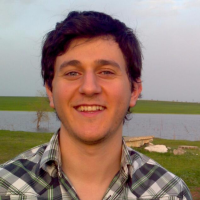


Aim & Scope
Dicle University Journal of Engineering, which includes experimental and theoretical works in the field of basic engineering, gives priority to publishing articles related to popular topics of engineering and aims to focus on multidisciplinary methods and technologies.
Dicle University Journal of Engineering is a multidisciplinary magazine and contains fundamental engineering issues. The target of the journal is to deliver the most popular developments in science and technology to researchers, engineers, and other curious communities.
Dicle University Journal of Engineering (DUJE) is a peer-reviewed, Open Access journal that publishes original research articles as well as review articles in several areas of engineering. The subject areas covered by the journal are:
Electrical and Electronics Engineering
Computer & Software Engineering
Biomedical Engineering
Mechanical Engineering
Mineral Processing and Mining Engineering
Civil Engineering
Author Guidelines
DUJE has general rules about the formatting of articles upon initial submission. When writing your paper, you will probably need to format your journal article ready for submission. To make this easier, Word templates are available for the journal, ready for you to download and apply to your research paper format.
Template file for Turkish version (*.docx)
Template file for English version (*.docx) (recommended)
Only when your paper is at the revision stage, will you be requested to put your paper in to a 'correct format' for acceptance and provide the items required for the publication of your article.
Blinding
It is extremely important that you do not include any identifying information about the authors in your document, as the article you submit will be sent to reviewers. Please review the body of the text for potential identifying information and ensure that all self-citations are indicated as Author (Year) for both in-text citations and references.
Article Structure
Introduction
State the objectives of the work and provide an adequate background, avoiding a detailed literature survey or a summary of the results.
Material and methods
Provide sufficient details to allow the work to be reproduced by an independent researcher. Methods that are already published should be summarized and indicated by a reference. If quoting directly from a previously published method, use quotation marks and also cite the source. Any modifications to existing methods should also be described.
Results
Results should be clear and concise.
Discussion
This should explore the significance of the results of the work, not repeat them. A combined Results and Discussion section is often appropriate. Avoid extensive citations and discussion of published literature.
Conclusions
The main conclusions of the study may be presented in a short Conclusions section, which may stand alone or form a subsection of a Discussion or Results and Discussion section.
Acknowledgments
In this section, you can acknowledge any support given which is not covered by the author's contribution or funding sections. This may include administrative and technical support, or donations in kind (e.g., materials used for experiments).
Reference
It is recommended to prepare the references with IEEE citation style. The details of the format are given in the template file.
Obligation for ORCID
Authors submitted articles to our journal should add their ORCID numbers. ORCID is short for Open Researcher and Contributor ID. ORCID is a 16-digit numbered URI that complies with the ISO Standard (ISO 27729), also known as the International Standard Name Identifier (ISNI). You can create a free registration for individual ORCID at http://orcid.org.
Copyright
Authors of accepted manuscripts should agree to transfer the copyright for the article to the DUJE and submit their final versions in electronic form adhering to the style of the DUJE.
Journal Plagiarism Policy
Dicle University Journal of Engineering has the policy to evaluate articles/reviews in terms of plagiarism. Before submitting manuscripts to our journal, it is suggested to check the similarity status/ratio in your manuscript with appropriate plagiarism software programs (iThenticate, Turnitin, etc.). In this respect, the articles/reviews submitted to our journal are subject to preliminary evaluation; manuscripts with a similarity ratio below 30%, which is determined with the Turnitin software, will be considered acceptable by our Editorial Board. Articles/reviews with more than the specified ratio (30%) are returned to the author(s).
Required files during submission:
1) Plagiarism Form ( Articles will be considered with IThenticate, Turnitin, etc. reports
2) Reviewer Suggestion Form
3) Transfer of Copyright Agreement Form
Required files during revision
1) Response to Reviewers Form
2) Highlighted version to indicate revisions
3) Clean version
Required files after acceptance
1) Ready to be published version (affiliations of authors need to be added)
Ethical Principles and Publication Policy
The manuscript should contain a statement that the work has been approved by the appropriate ethical committees related to the institution(s) in which it was performed and that subjects gave informed consent to the work. The research requiring the permission of the Ethics Committee are as follows:
-All kinds of research conducted with qualitative or quantitative approaches that require data collection from participants using survey, interview, focus group work, observation, experiment, interview techniques
-Use of humans and animals (including material/data) for experimental or other scientific purposes
-Clinical research on humans
-Research on animals
-Retrospective studies in accordance with the law of protection of personal data
-Getting permission and specifying the owners for the use of scale, questionnaire, and photographs belonging to others
-Stating that the copyright regulations are complied with for the ideas and works of art used
Price Policy
According to the decision of the Editorial Board dated 22 June 2021, the amount of the requested fee is revised.
" 200TL" fee is requested for each article submission. This fee is used for the Journal's professional typesetting.
Those who will apply for associate professorship according to the UAK criteria can communicate with us.
Tel: +90-412 241 10 00 (3637)
E-mail: muhendislikdergisi@dicle.edu.tr / mesut.seker@dicle.edu.tr

